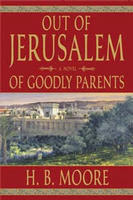January has come and gone, and perhaps your New Year’s Resolutions went out with the dried Christmas Tree. At the beginning of the year, many of us heard the familiar buzz about “New Year’s Resolutions” on the radio, television, or even read about nifty ways to set goals in newspaper articles and magazines.
You might find yourself wondering, like I am, exactly what were your New Year’s Resolutions? They must have been noble at the time, but now that you are in the full swing of work, kids in school, homework, basketball season . . . they are but a distant memory.
And if you’re like me, more often than not, your New Year’s Resolutions fizzled before January even came to an end. So what to do? Is it even possible to set goals after the initial buzz has died down? Perhaps it’s time to look at the type of goals we set over the years.
None of mine have been spectacular, or noticeable to anyone else. Most of them have been quite boring, in fact. For example, I’ve set many goals and achieved them, but they have been the “same” goals, year in and year out. Goals that I set and reset often are daily scripture study or exercising three times a week. I think I’ve been setting these goals for twenty years. Although they are great and important goals, they have become my lifestyle—not really necessary to set goals for them anymore. More recent goals include being more patient with my children; or work-oriented ones like writing 1,000 words a day, finishing a manuscript in a certain time-frame, updating my website . . .
Some failed goals that I set each year include: catching up on those scrapbooks, cooking more than one and two course meals, keeping my office organized, cleaning out the bookcases . . . oh well.
It’s not too late to try something new. And not just because it’s still early in 2008, but because I have been stuck in a rut. I’m not looking for exciting, fast-paced, thrilling achievements. Although I’ll take those, too. It would actually be nice to slow down a little, savor more out of life, and enjoy what is right in front of me. Spiritually, physically, and mentally.
Spiritual:
Instead of reaching upward, I want to reach outward. Instead of reading a chapter of the Book of Mormon a day, I want to study everything I can about the prophet Abinadi. Artists depict the prophet Abinadi as an elderly man preaching to the people of King Noah. But what if he was a young man of thirty, with a wife and small children? What do the scholars say about his life? How would it be to know that you are going to be put to death for preaching the word of God, yet you continue to prophesy anyway—leaving behind all your earthly possessions?
Physical:
Instead of stringent exercising three times a week, I want to take my children on more adventures . . . ones that include a little work and perspiration. Not long ago, I purchased The Utah Mama’s Handbook. It has hundreds of suggestions for fun activities, outings, and vacations with your children throughout the state of Utah. I can’t remember the last time that I woke up, threw all other responsibilities aside, and said, “Children, let’s go have some fun.”
Mental:
In the place of focusing on how I can be more patient as a parent, I want to find more things in common with my children—that we can enjoy doing together. My ten-year-old daughter loves to sew, and so do I. But it’s been a long time since I’ve had time to do any sewing. And my thirteen-year-old son is fascinated with history, as I am. Why not make a list of historical sites and local museums, and then take the odd afternoon to visit them? My seven-year old loves to draw and create, and I, too, have enjoyed that in the past when I’ve had “time.” It’s time to sit down with her and discover what a beautiful world we really live in. Finally, my three-year old is obsessed with horses, though I know little about them. It would be fun to find a place where she can ride them and I might learn something too!
Trying something new might take a little more conscious effort. Reaching outward instead of making lists and compiling stats will definitely be a change. But it will be worth it if my belated New Year’s Resolutions turn from achieving a few goals to creating a lot of great memories. How about it? Are you in?
Thursday, February 14, 2008
Friday, February 8, 2008
How the Priesthood Nurtures Women
“The priesthood is the power and authority to represent God.”
—David O. McKay
Although the authority of the priesthood is bestowed only on worthy male members of the Church, the blessings of the priesthood are available to everyone. The priesthood was restored on earth so that "the immortality and eternal life of man" (Moses 1:39) could be brought to Heavenly Father’s children. Priesthood holders serve in their offices to bring salvation to each of us, His children.
Growing up, my father was an exemplary patriarch. I seemed to coast through life with blessings and safe-guards that I didn’t fully appreciate until I was married with my own children. Then life took a fragile turn, and I made the passage from childhood into adulthood.
In 2006, on a cold November day, my son received the Aaronic Priesthood. Although his journey of holding the priesthood has just begun, his life has been touched by the power of the priesthood since before birth. The night before I checked into the hospital, my husband gave me a priesthood blessing. I was petrified, to say the least, to wade through the unknown process of childbirth, something that Elder Holland had referred to as the “valley of death.”
A couple of months later, a circle of men gathered inside a chapel and my son received his second priesthood blessing. Time passed and after a vacation, my ten-month old became violently ill. When I called the doctor’s office, the nurse told me the “bug” was going around and to keep him hydrated. Five days crept by, and my already thin son became completely lethargic. To some, the answer might have been immediate, but for me, it took an act of faith to ask for a priesthood blessing. When my husband administered the blessing to my son, I felt the easing of anxiety. And by the next morning, my son had made great improvement.
But what if we don’t have children or we are single? Or our husbands do not hold the priesthood, or for some reason, they cannot officiate? What blessings are we entitled to through the priesthood? As women, we receive the blessings of the priesthood through many ordinances, including Baptism, the Gift of the Holy Ghost, Patriarchal Blessings, the Setting-Apart for a Calling, Temple Covenants, Blessings of Comfort and Healing, and the Sacrament.
In 1999, while living in California, I checked out the VHS tapes of BYU Women’s Conference from the stake library. I was busy sewing and half-listening to the talks. When Truman G. Madsen spoke on “The Savior, the Sacrament, and Self-Worth,” I paused in my work. The entire talk was excellent, but one statement changed my outlook forever on the administration of the sacrament and the priesthood power behind the weekly ordinance.
Brother Madsen said, “You faithful sisters, married or unmarried, who move daily (and hardly with a break) from the garden plot to the crucial minutia of food labels to the cups and measures of cookery; you, who struggle and preside in the kitchen and keep vigil; you, who reach out to the perennial needs of your family and loved ones; you, who with artistry gather flowers and turn an ordinary table into an altar that summons prayer and thanksgiving; you, who by your very presence, turn eating into a feast—into dining in the name of the Lord, and who, therefore, bring a bountiful measure of grace to your table, lend your faith to boys and sometimes inept men who officiate at the sacrament table. Let the tables turn on your serving. Lend your faith to our trying to act as you do in Christ-like dignity. For this is as close as we may ever come to your divine calling to give and to nurture life itself . . . Come to a foretaste of the marriage supper of the Lamb.”
“Come unto me,” rang through my mind, over and over. As we accept His sacrament, we are accepting His service, His Atonement, and His offering of salvation. In essence, we come unto Christ through the priesthood. The priesthood is an offering for everyone. It serves all mankind—men, women, and children alike. How can women share in the blessings of the priesthood? By accepting the blessings that are right in front of us. By living to be worthy of the priesthood blessings that are so readily ours. By accepting opportunities to serve. By supporting the priesthood in our homes. And by accepting God’s love, His sacrifice, and embracing our own Redemption.
—David O. McKay
Although the authority of the priesthood is bestowed only on worthy male members of the Church, the blessings of the priesthood are available to everyone. The priesthood was restored on earth so that "the immortality and eternal life of man" (Moses 1:39) could be brought to Heavenly Father’s children. Priesthood holders serve in their offices to bring salvation to each of us, His children.
Growing up, my father was an exemplary patriarch. I seemed to coast through life with blessings and safe-guards that I didn’t fully appreciate until I was married with my own children. Then life took a fragile turn, and I made the passage from childhood into adulthood.
In 2006, on a cold November day, my son received the Aaronic Priesthood. Although his journey of holding the priesthood has just begun, his life has been touched by the power of the priesthood since before birth. The night before I checked into the hospital, my husband gave me a priesthood blessing. I was petrified, to say the least, to wade through the unknown process of childbirth, something that Elder Holland had referred to as the “valley of death.”
A couple of months later, a circle of men gathered inside a chapel and my son received his second priesthood blessing. Time passed and after a vacation, my ten-month old became violently ill. When I called the doctor’s office, the nurse told me the “bug” was going around and to keep him hydrated. Five days crept by, and my already thin son became completely lethargic. To some, the answer might have been immediate, but for me, it took an act of faith to ask for a priesthood blessing. When my husband administered the blessing to my son, I felt the easing of anxiety. And by the next morning, my son had made great improvement.
But what if we don’t have children or we are single? Or our husbands do not hold the priesthood, or for some reason, they cannot officiate? What blessings are we entitled to through the priesthood? As women, we receive the blessings of the priesthood through many ordinances, including Baptism, the Gift of the Holy Ghost, Patriarchal Blessings, the Setting-Apart for a Calling, Temple Covenants, Blessings of Comfort and Healing, and the Sacrament.
In 1999, while living in California, I checked out the VHS tapes of BYU Women’s Conference from the stake library. I was busy sewing and half-listening to the talks. When Truman G. Madsen spoke on “The Savior, the Sacrament, and Self-Worth,” I paused in my work. The entire talk was excellent, but one statement changed my outlook forever on the administration of the sacrament and the priesthood power behind the weekly ordinance.
Brother Madsen said, “You faithful sisters, married or unmarried, who move daily (and hardly with a break) from the garden plot to the crucial minutia of food labels to the cups and measures of cookery; you, who struggle and preside in the kitchen and keep vigil; you, who reach out to the perennial needs of your family and loved ones; you, who with artistry gather flowers and turn an ordinary table into an altar that summons prayer and thanksgiving; you, who by your very presence, turn eating into a feast—into dining in the name of the Lord, and who, therefore, bring a bountiful measure of grace to your table, lend your faith to boys and sometimes inept men who officiate at the sacrament table. Let the tables turn on your serving. Lend your faith to our trying to act as you do in Christ-like dignity. For this is as close as we may ever come to your divine calling to give and to nurture life itself . . . Come to a foretaste of the marriage supper of the Lamb.”
“Come unto me,” rang through my mind, over and over. As we accept His sacrament, we are accepting His service, His Atonement, and His offering of salvation. In essence, we come unto Christ through the priesthood. The priesthood is an offering for everyone. It serves all mankind—men, women, and children alike. How can women share in the blessings of the priesthood? By accepting the blessings that are right in front of us. By living to be worthy of the priesthood blessings that are so readily ours. By accepting opportunities to serve. By supporting the priesthood in our homes. And by accepting God’s love, His sacrifice, and embracing our own Redemption.
Saturday, February 2, 2008
The Passing of a Great Man--A Prophet of the Ages

There have been many tributes to President Gordon B. Hinckley over the past week. He passed away on January 27, 2008. As with any major event in a person's life, I remember where I was and what I was doing when I heard the news. My kids and I like to watch Extreme Makeover on Sunday nights. The news cut into the program and I learned from the newscaster that President Hinckley had passed away about an hour before.
I was surprised, but then again I wasn't surprised. I thought, "He's finally been released from his earthly calling--at the age of 97." He was an amazing man. Tireless. Someone that I can only hope to emulate a glimmer of what he was.
What else can I say that hasn't been said by countless others? I remember re-reading the Book of Mormon one year--although I thought I was on overload for doing it. But I firmly believe that when a prophet issues a challenge, it should be followed.
I met the Hinckleys on numerous occasions--at the Polynesian Cultural Center when I lived in Hawaii with my husband. When my father-in-law (former PCC President) "retired" from his position, we had a dinner in his honor at the Joseph Smith building. I think almost every apostle was there, including President Hinckley. I met him and his wife, shook hands, and we posed for a picture. My grandmother kept that picture on her fridge for many years.
When I wrote Volume Two of my Out of Jerusalem series (A Light in the Wilderness), Marjorie Hinckley had recently passed away. I remembered the raw grief that President Hinckley had shown at her funeral. I wanted to try to identify with Ishmael's wife as she was forced to bury her husband in the middle of the wilderness--and walk away from his grave and leave him in a foreign land. I re-read through President Hinckley's words of utter loss and loneliness, and tried to capture the same devastation for the family of Ishmael.
The advice that President Hinckley has given over the years is truly priceless and close to my heart. Counsel about children, church service, scripture reading, tithing, staying out of debt, marriage . . . have all profoundly affected me. I think the one thing that always stands out in my mind was his counsel to "Do your best."
What more can we do if we are doing our best?
Many times I feel overwhelmed and wish that I had no cares, no worries, more time to relax . . . If I just commit to do my best, it will all work out.
This morning my husband and I went to President Hinckley's funeral. After weeks of snow storms, today dawned bright, cold and clear. The sky was a brilliant blue, the clouds fluffy and white. We sat in the enormous conference center and waited for the funeral to begin. On the big screens we saw the funeral procession heading for the building. Then we watched the families approach the underground door, and gather to watch the casket transported on a moveable platform. The apostles lined up at the entrance into the auditorium and the casket was wheeled past them.
Even with all of this formality and grand setting, I was struck by the simple nature of the proceedings. Here was a quiet, unassuming man who had touched literally millions of lives.
The general authorities took their usual places, except for the seat between President Monson and President Eyring was empty.
The speakers spoke in loving, hushed tones of his legacy of service and love for others. They heralded his sense of humor, his affection for youth, his tireless work. They identified that he, like us, grieved deeply for his wife. But he put on his shoes and went back to work.
A few days ago, I watched the Glen Beck segment in which he pays tribute to President Hinckley. Beck said he passed up on an opportunity to meet President Hinckley and shake his hand for fear of coming across as a "fan." Now he regrets that decision. "I" was able to shake his hand. But whether or not anyone of us have met him in person, his goodness and influence reaches deep into our hearts, wherever we are.
Subscribe to:
Posts (Atom)













